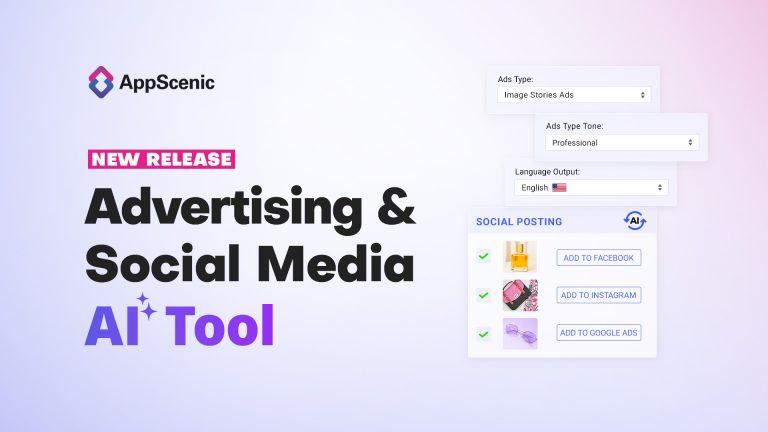Running an ecommerce store can be overwhelming. Between managing inventory, fulfilling orders, handling customer service, and marketing your brand, the to-do list never seems to end.
That’s where a virtual assistant (VA) can be a game-changer for ecommerce business owners looking to streamline operations and focus on growing their businesses.
What better way to help you find and hire a VA than writing this next guide? We’ll explore the process of finding and hiring the right virtual assistant for your ecommerce store. From understanding their role to tips for selecting the perfect candidate, we’ve got you covered.
Table of Contents
Why hire a virtual assistant for your ecommerce store?
A virtual assistant is a remote professional who can handle a variety of tasks, freeing up your time and mental bandwidth.
But why is hiring a VA particularly beneficial for ecommerce?
- Cost-effective staffing: Hiring a VA is more affordable than hiring an in-house employee. Many virtual assistants work on an hourly or per-task basis, allowing you to scale your expenses based on your needs.
- Specialized skills: Virtual assistants often come with niche expertise, such as managing Shopify stores, creating product listings, or running ad campaigns. Hiring someone with these skills can grow your store’s performance.
- Time management: Delegating repetitive or time-consuming tasks, like responding to customer inquiries or managing social media, lets you focus on high-level strategy and growth.
The hidden benefits of hiring a virtual assistant
Hiring a VA isn’t just about lightening your workload. They can provide unexpected benefits, including:
- Mental clarity: By offloading tasks you dislike, you free up mental space to focus on activities you enjoy, like brainstorming new product ideas or refining your business strategy.
- Accountability partner: VAs can help keep you on track by setting reminders, organizing schedules, and ensuring deadlines are met.
- Adaptability: Since VAs are contractors, you’re not locked into long-term commitments. You can adjust their hours or responsibilities as your needs change.
Key tasks a virtual assistant can handle
Wondering what you can delegate to a virtual assistant? Here are some common tasks they can manage:
- Customer service: Responding to customer inquiries, processing refunds, and resolving complaints.
- Product listings: Writing descriptions, uploading images, and ensuring accurate product categorization.
- Inventory management: Monitoring stock levels, coordinating with suppliers, and updating inventory data.
- Order fulfillment: Processing orders, tracking shipments, and resolving delivery issues.
- Social media management: Scheduling posts, engaging with followers, and running ad campaigns.
- SEO and content creation: Writing blog posts, optimizing product pages, and improving your store’s search engine rankings.
- Data entry and reporting: Organizing sales data, tracking KPIs, and preparing performance reports.
When to hire a virtual assistant?
Knowing the right time to bring a virtual assistant (VA) into your ecommerce business can significantly impact its growth and efficiency. VAs aren’t full-time employees, but they provide ongoing support for your business without the extra expenses that come with a permanent hire.
Here are some clear signs that hiring a VA could be the right move for you:
- When you’re bogged down with repetitive administrative tasks like data entry, responding to customer queries, or updating inventory, it’s time to delegate. These tasks, while essential, can take valuable time away from strategic planning and growth-focused activities.
- Depending on the hours, time zone, and expertise required, hiring a VA can cost anywhere from $100 to $3,000+ per month. If you’re at a point where you value your time more than the cost of outsourcing these tasks, it’s a smart move.
- Do you spend hours every week managing customer service, processing refunds, or handling bookkeeping? These repetitive tasks are perfect for delegation to a VA.
- Many VAs excel at organization, time management, and streamlining workflows. If your strengths lie elsewhere, like creativity or strategic thinking, a VA can act as your organized right-hand person, ensuring everything runs smoothly.
- If your business is scaling quickly, you might struggle to keep up with the increased workload. Whether you’re a busy parent or managing a full-time job alongside your ecommerce store, a VA can help lighten the load.
Perfect timing for a virtual assistant
A VA can be a game-changer when you’re approaching a particularly busy season or a significant milestone in your business. For instance:
- Holiday shopping rush: An extra pair of hands can help manage the surge in customer service requests, order processing, and returns during peak seasons.
- Launching a new product: Delegate tasks like competitor analysis, listing optimization, and social media scheduling to ensure a smooth launch.
- Scaling up: If your business is transitioning from a side hustle to a full-time operation, a VA can handle the operational side while you focus on scaling.
By hiring a virtual assistant at the right time, you can effectively balance the demands of your growing ecommerce business while maintaining your sanity. Whether it’s freeing up your time, improving your workflow, or simply handling the tasks you’d rather not do, a VA can be the key to taking your business to the next level.
Steps to finding the right virtual assistant
Now that you know why a VA is invaluable in this industry, here’s how to find the perfect fit for your ecommerce business.
1. Define your needs
Start by making a detailed list of tasks you want to delegate. This helps you identify the skills and experience you’re looking for in a VA. For example:
- Need help with product uploads? Look for someone experienced with Shopify or WooCommerce, if one of these is the ecommerce platform you’re using.
- Want to boost your social media presence? A VA with a background in digital marketing is ideal.
2. Set a budget
Virtual assistant rates vary widely based on their expertise and location. A VA from the Philippines might charge $5–$10 per hour, while a US-based VA with specialized skills could cost $30–$50 per hour. Establish a budget that balances affordability and quality.
3. Use the right platforms
There are several platforms where you can find experienced virtual assistants:
- Freelance websites: Upwork, Fiverr, and Freelancer are great places to start.
- VA agencies: Agencies like TaskBullet and Time Etc. provide pre-vetted VAs with specific skill sets.
- Job boards: Post your requirements on job boards like OnlineJobs.ph or PeoplePerHour.
- Networking: Ask for recommendations in ecommerce forums, Facebook groups, or LinkedIn.
4. Create a clear job description
When posting a job listing, be specific about your expectations. Include details like:
- The tasks the VA will handle.
- Required skills and tools (e.g., proficiency in Shopify, Canva, or Google Analytics).
- Working hours and time zones.
- Payment terms and deadlines.
5. Screen candidates
Narrow down applicants by reviewing their resumes, portfolios, and client reviews. Conduct an initial interview to assess their communication skills, reliability, and enthusiasm for the role.
6. Test their skills
Before committing, assign a small paid test task. For instance, ask the VA to write a product description or schedule a week’s worth of social media posts. This will give you insight into their capabilities and work style.
7. Check references
Reach out to previous clients or employers for feedback on the candidate’s performance and professionalism.
Onboarding and managing tour virtual assistant
Hiring the VA is just the beginning. Proper onboarding and management are essential for a successful partnership.
1. Provide training and resources
Even if the VA is experienced, every ecommerce store has unique processes. Share training materials, access to tools, and clear instructions to help them hit the ground running.
2. Set clear expectations
Establish clear goals, deadlines, and communication protocols. Tools like Trello, Asana, or Slack can help keep everyone on the same page.
3. Use collaboration tools
Equip your VA with tools to streamline workflows:
- Project management: Monday.com, ClickUp.
- Communication: Zoom, Microsoft Teams.
- File sharing: Google Drive, Dropbox.
4. Schedule regular check-ins
Weekly or bi-weekly check-ins help you track progress, address challenges, and provide feedback.
5. Monitor performance
Track KPIs related to the tasks your VA handles. For instance, if they’re managing customer service, monitor response times and resolution rates.
Final thoughts
As said right from the start, hiring a virtual assistant for your ecommerce store can be a game-changer, enabling you to work smarter, not harder. With the right support in place, you’ll be free to focus on what truly matters, growing your business and delighting your customers.












